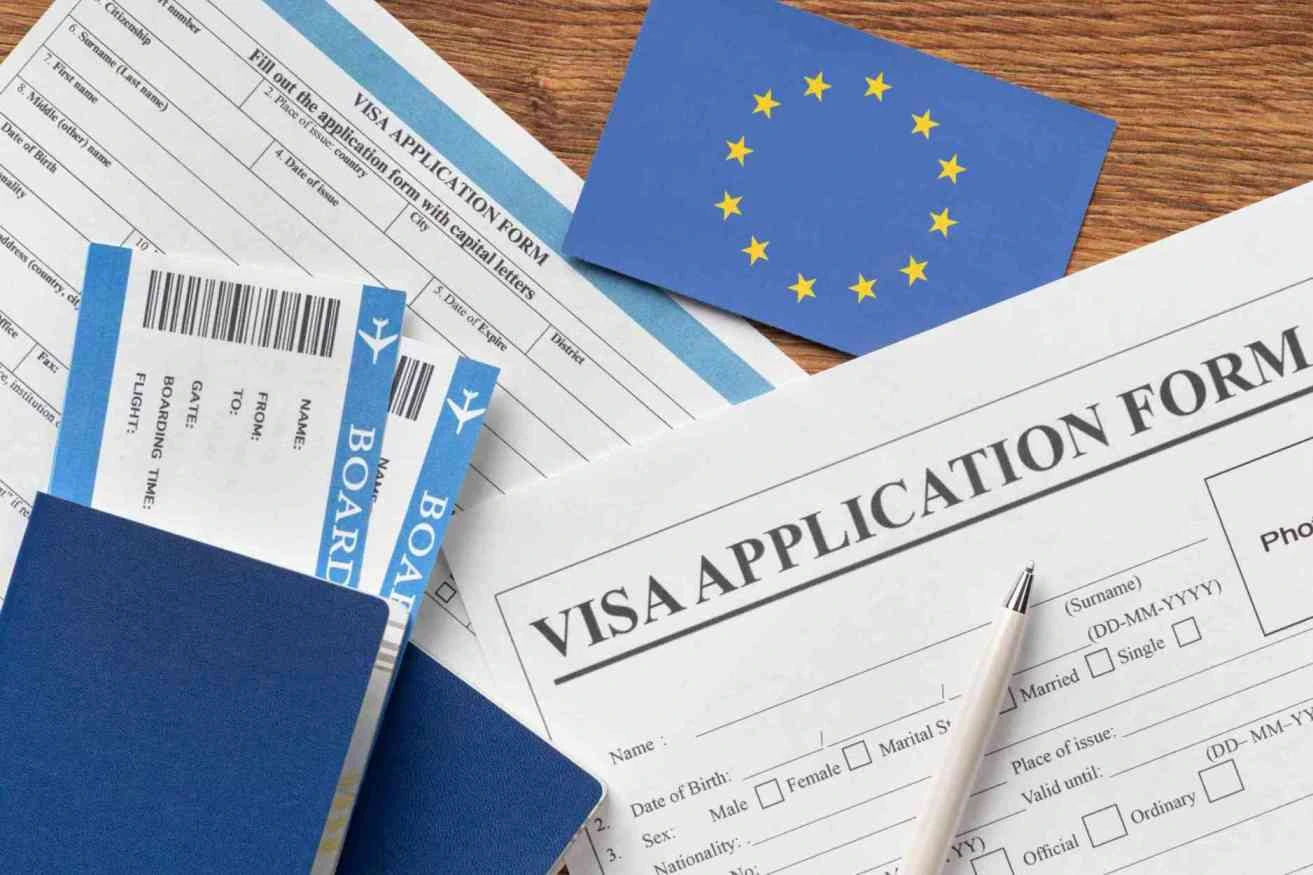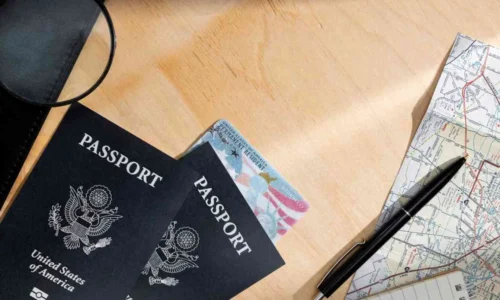Which Countries Give Free Citizenship in Europe? – Easiest Country in 2025
- Ahmed hamdy Ahmed hamdy
- 0 Comments
Dreaming of an EU passport without spending a fortune? You’re not alone. More people than ever are asking:
So “Which country in Europe gives free citizenship?”
The truth? While no EU country hands out citizenship with zero effort, many offer cheap, low-cost, fast-track, or descent-based options that feel nearly free, especially if you have ancestry through:
-
Ancestry (e.g., Ireland, Italy, Poland)
-
Marriage (e.g., Spain, France, Portugal)
-
Naturalization after short residency (e.g., Portuguese citizenship – 5 years)
- Investment (optional) in countries like Malta
Who Is This For?
-
Americans or Canadians with European grandparents
-
Expats seeking visa-free travel across the EU
-
Digital nomads and remote workers who want a legal base in Europe
-
Retirees or investors planning for global mobility
Whether you’re a remote worker, someone with European heritage, or just tired of visa applications, this guide walks you through the easiest and most affordable ways to get European citizenship.
Is Free Citizenship in Europe Really Possible — or Just a Myth?
Free citizenship in Europe doesn’t mean zero effort or cost.
Instead, it refers to citizenship routes with no investment required, especially:
- Citizenship by descent (from a parent or grandparent)
- Naturalization after legal residency
- Marriage to a citizen
- Low-fee application processes in countries like Portugal or Ireland
No EU country offers automatic citizenship to foreigners without some form of eligibility, such as ancestry, marriage, or legal residence.
Most EU countries operate on jus sanguinis — the right of blood — not jus soli. So if you have European roots, your path to a second passport may cost nothing more than paperwork.
| Myth | Reality |
|---|---|
| Any foreigner can get citizenship for free | Only eligible individuals (by ancestry, marriage, or residency) can apply |
| No cost involved | Application, translation, and legal document fees apply |
| Happens quickly | Most take 6 months to several years |
| Every EU country allows it | Citizenship rules vary widely |
Which European Countries Offer the Easiest & Cheapest Citizenship in 2025?
Several European countries offer low-cost, fast-track citizenship — especially if you qualify through ancestry, marriage, or naturalization with short residency. Here’s a country-by-country guide based on:
-
Residency requirement length
-
Dual citizenship policy
-
Language and cultural tests
-
Investment requirement (if any)
Below is a list of the most accessible European countries to obtain citizenship based on residency duration, dual citizenship policies, and legal flexibility.
1. 🇵🇹 Portugal
-
✅ Residency requirement: 5 years (via D7, Golden Visa, or work)
-
✅ Dual citizenship: Allowed
-
✅ Language test: A2 Portuguese
-
✅ Investment: Optional (Golden Visa)
-
📌 Ideal for remote workers, retirees, and investors
2. 🇮🇪 Ireland
-
✅ Descent eligibility: Parent or grandparent
-
✅ Residency for others: 5 years
-
✅ Dual citizenship: Allowed
-
✅ Language: English (no test required)
-
📌 Best for Irish-Americans & Brits with ancestry
3. 🇮🇹 Italy
-
✅ Descent: No generational limit on paternal side
-
✅ Residency: 10 years (non-EU) or 4 years (EU)
-
✅ Language test: B1 Italian
-
✅ Dual citizenship: Permitted
-
📌 Powerful option for Italian heritage
4. 🇸🇪 Sweden
-
✅ Residency: 5 years
-
✅ Dual citizenship: Allowed
-
✅ Language test: None (as of now)
-
📌 Lenient policies for naturalization
5. 🇫🇷 France
-
✅ Residency: 5 years (2 for students)
-
✅ Language test: B1 French
-
✅ Dual citizenship: Allowed
-
📌 Popular for families & professionals
6. 🇵🇱 Poland
-
✅ Descent eligibility: Broad and generous
-
✅ Residency: 3–5 years
-
✅ Language test: B1 Polish
-
✅ Dual citizenship: Allowed
-
📌 Strong option for Polish-Americans
7. 🇪🇸 Spain
-
✅ Residency: 10 years (2 for Latin Americans)
-
❌ Dual citizenship: Limited
-
✅ Language: Spanish A2 + cultural test
-
📌 Good for Latin American nationals
8. 🇳🇱 Netherlands
-
✅ Residency: 5 years
-
❌ Dual citizenship: Rarely allowed
-
✅ Language test: A2 Dutch
-
📌 Useful for long-term EU workers
9. 🇩🇪 Germany
-
✅ Residency: 5–8 years (reduced for integration/marriage)
-
❌ Dual citizenship: Limited exceptions
-
✅ Language test: B1 German
-
📌 Efficient for skilled migrants
| Country | Path Type | Time to Citizenship | Dual Citizenship | Language Test | Investment Required |
|---|---|---|---|---|---|
| 🇵🇹 Portugal | Residency/Naturalization | 5 years | ✅ Yes | A2 Portuguese | Optional (Golden Visa) |
| 🇮🇪 Ireland | Descent/Naturalization | 5 years (or less via ancestry) | ✅ Yes | None (for descent) | None |
| 🇮🇹 Italy | Descent/Naturalization | Varies by route | ✅ Yes | B1 (if by residency) | None |
| 🇪🇸 Spain | Residency | 10 years (2 for LatAm) | ❌ Limited | A2 Spanish | No |
| 🇸🇪 Sweden | Naturalization | 5 years | ✅ Yes | ❌ None | No |
| 🇲🇹 Malta | Investment/Naturalization | 12 months (via investment) | ✅ Yes | Yes | ✅ Yes (€690,000+) |
| 🇱🇻 Latvia | Residency to Citizenship | 10 years | ✅ Yes | Yes | ✅ Yes (property/investment) |
| 🇬🇷 Greece | Residency to Citizenship | 7 years | ✅ Yes | Yes | ✅ Yes (€250,000+) |
| 🇩🇪 Germany | Naturalization | 6–8 years | ❌ Limited | B1 German | No |
| 🇫🇷 France | Naturalization | 5 years (2–3 for students) | ✅ Yes | B1 French | No |
What’s the Best Way to Qualify for EU Citizenship: Descent, Marriage, or Residency?
There are five main paths to European citizenship:
-
Citizenship by Descent (Ancestry) – Free or low-cost for those with European roots
-
Citizenship by Marriage – Speeds up the residency timeline
-
Naturalization – For long-term residents (usually 5–10 years)
-
Citizenship by investment – Fastest but expensive
-
Birthright Citizenship – Rare in Europe, limited to special cases
Each path has its own pros and cons. Here’s how to choose the right one:
1. Citizenship by Descent (Ancestry)
Best for: People with a parent or grandparent from Europe
Cost: Usually free, except for documentation fees
Countries: Ireland, Italy, Poland, Lithuania, Hungary, Germany
What You’ll Need:
-
Birth and marriage certificates proving lineage
-
Apostilled and translated documents
-
Proof of continuous ancestry (no skipped generations)
2. Citizenship by Marriage
Best for: Spouses of EU citizens
Countries with shorter timelines:
-
Spain: 1 year
-
Italy: 2 years (residing together)
-
Ireland: 3 years of marriage and residency
What’s Required:
-
Proof of legal marriage
-
Joint residency (in some countries)
-
Background check and basic language/civic test
3. Naturalization After Residency
✅ Best for: Expats, remote workers, and international students
✅ Typical Requirement: 5–10 years of continuous legal residency
✅ Countries with Short Paths:
-
Portugal (5 years)
-
Sweden (5 years)
-
France (5 years or 2 for students)
Portugal allows citizenship with only 7 days of presence per year under the D7 Passive Income Visa.
4. Citizenship by Investment
Citizenship by investment programs are best for high net worth individuals
Fastest Routes:
-
Malta: 12–16 months
-
Bulgaria: 18 months
Cost Range: €500,000–€1,000,000+
Includes: Real estate, donations, government bonds
Read Also: 19 Easiest Countries to Get Citizenship
5. Birthright Citizenship
Rare in Europe – most countries follow jus sanguinis
Where It May Apply:
-
France: Born and raised in France with foreign parents
-
Ireland: Born before 2005, or if one parent is legally resident for 3+ years
Clarification: Being born in Europe does not automatically give citizenship.
Descent remains the most affordable route to citizenship in Europe, especially for Americans and Canadians with Italian or Irish roots.
What Are the Real Benefits of European Citizenship in 2025?
European citizenship offers life-changing advantages, including:
-
Visa-free travel to 150+ countries
-
Freedom to live, work, and study in 27 EU member states
-
Access to top-tier healthcare and education
-
Political and economic stability
-
A secure future for your children and family
Let’s break these down further.
1. Visa-Free Global Travel
-
Enjoy visa-free or visa-on-arrival access to over 150 countries, including the US, UK, Canada, and Schengen Zone
-
Especially valuable for citizens of countries with limited mobility
2. Live, Work & Retire Anywhere in Europe
-
EU citizenship gives you the right to reside and work freely in any EU/EEA country
-
Move from Portugal to France or Germany without visas or permits
Use Case: Remote workers can relocate with ease or access better job markets.
3. Free or Subsidized Healthcare & Education
-
EU citizens enjoy universal healthcare systems and tuition-free universities
-
Countries like Germany and Sweden offer world-class benefits for residents and their children
4. Economic and Legal Stability
-
EU countries rank high in the Global Peace Index and World Bank governance scores
-
Gain access to strong banking protections and investment-friendly regulations
5. Legacy for Future Generations
-
Pass citizenship rights to your children and spouse
-
Build multi-generational access to European quality of life
6. Lifestyle Freedom
-
Choose from beachfront towns, ski resorts, historic cities, or countryside retreats
-
Access public services, transport, and cultural activities at EU resident rates
How to Apply for EU Citizenship in 2025 (Step-by-Step Guide)
To apply for European citizenship, you must qualify through ancestry, marriage, residency, or investment, then follow your chosen country’s legal process.
The application steps usually include:
-
Confirm eligibility
-
Choose your country
-
Collect documents
-
Apply for residency (if needed)
-
Meet residency duration
-
Pass language/integration tests
-
Submit application
-
Attend an interview or a ceremony
Let’s break it down.
Step 1: Confirm Your Eligibility
You may qualify through:
-
Descent: Parent or grandparent from an EU country
-
Marriage: Spouse is an EU citizen
-
Residency: Long-term stay on a visa
-
Investment: You meet country-specific financial requirements
📌 Tip: Use ancestry records and visa history to guide your path.
Step 2: Choose the Best Country for Your Situation
Ask yourself:
-
Do you qualify for citizenship by descent (e.g., Italy, Ireland)?
-
Do you prefer low-cost and fast-track residency (e.g., Portugal)?
-
Are you open to investment-based routes (e.g., Malta)?
Step 3: Gather the Required Documents
Most countries require:
-
Valid passport
-
Birth and marriage certificates (yours and ancestors’)
-
Residency permits
-
Proof of address and income
-
Background check
-
Language proficiency certificate (if applicable)
📌 All foreign documents must be apostilled and officially translated.
Step 4: Apply for Residency (If Not Eligible by Descent)
Before applying for citizenship, you’ll often need legal residency first.
Popular EU Residency Options:
-
Portugal Golden Visa: D7 Passive Income Visa or Golden Visa
-
Greece Golden Visa: Golden Visa (real estate)
- Latvia Residency by Investment: Residency by Investment
- Germany/Spain: Digital Nomad or Skilled Work Visas
📌 Note: Residency years usually count toward citizenship eligibility.
Step 5: Meet the Residency Requirement
Examples:
-
Portugal: 5 years (with minimal physical presence)
-
Sweden, France: 5 years
-
Germany: 8 years (reduced with integration)
-
Spain, Latvia: 10 years
Stay legally and maintain your visa/residency status.
Step 6: Pass Language & Civic Tests (If Required)
Language proficiency and cultural integration are common prerequisites.
| Country | Language Test | Civic/Integration Exam |
|---|---|---|
| Portugal | A2 Portuguese | Yes |
| France | B1 French | Yes |
| Germany | B1 German | Yes |
| Netherlands | A2 Dutch | Yes |
| Sweden | None (as of 2025) | No |
Step 7: Submit Your Citizenship Application
Submit through:
-
National immigration office
-
Ministry of Interior
-
Local municipality
-
Embassy or consulate (if applying from abroad)
📌 Attach translated documents and pay the government fee (varies by country).
Step 8: Attend Interview or Take Oath (If Required)
-
In-person Interview
-
Naturalization ceremony
In countries like Portugal and Ireland, applicants can often complete the process while living abroad — making these ideal for remote professionals or retirees.
Can Residency or Work Visas Lead to EU Citizenship in Europe?
Yes — in most EU countries, residency through work, study, or passive income visas can lead to citizenship after a qualifying period (usually 5–10 years).
To qualify, you must:
-
Hold legal residency continuously
-
Meet physical presence requirements
-
Pass language and civic tests
-
Maintain financial stability and a clean record
Popular Residency-to-Citizenship Pathways in Europe
-
🇵🇹 Portugal – Offers D7, Golden Visa, and Digital Nomad options with just 5 years of residency and only 7 days/year of physical presence required. Ideal for remote workers, retirees, and passive income earners.
-
🇬🇷 Greece – Golden Visa program requires €250,000 in real estate and 7 years of residency with 183 days/year presence. Popular for investors seeking EU citizenship.
-
🇪🇸 Spain – Grants citizenship after 10 years of continuous legal stay (or 2 years for Latin Americans) through Digital Nomad or Entrepreneur Visas. Dual citizenship limited to select countries.
-
🇱🇻 Latvia – Residency-by-investment route with low property threshold, but requires 10 years to citizenship and passing a Latvian language test. Best for budget-focused investors.
-
🇩🇪 Germany – Blue Card and Skilled Worker Visa holders can apply for citizenship after 8 years (or 6 with integration). Top choice for professionals in tech, engineering, and healthcare.
| Country | Visa Options | Citizenship Timeline | Dual Citizenship | Language Test |
|---|---|---|---|---|
| Portugal | D7, Golden Visa, Digital Nomad | 5 years | ✅ Yes | A2 Portuguese |
| Greece | Golden Visa | 7 years | ✅ Yes | Yes |
| Spain | Nomad, Freelance | 10 years (2 for LatAm) | ❌ Limited | A2 Spanish |
| Germany | EU Blue Card | 6–8 years | ❌ Limited | B1 German |
| Latvia | Residency by Investment | 10 years | ✅ Yes | Yes |
Which European Countries Allow Dual Citizenship — And Why It Matters
Many EU countries allow dual citizenship, meaning you can keep your original passport while gaining European nationality. This provides:
-
Greater global mobility
-
Access to two healthcare, education, and legal systems
-
Inheritance and property rights in both countries
-
More security in times of political or economic crisis
Countries in Europe That Allow Dual Citizenship
-
🇵🇹 Portugal – Fully allows dual nationality without restrictions
-
🇮🇪 Ireland – No limitations, ideal for Irish-Americans
-
🇮🇹 Italy – Generous laws, even allows triple citizenship in some cases
-
🇸🇪 Sweden – Dual nationality permitted since 2001
-
🇫🇷 France – Recognizes and accepts dual/multiple citizenships
-
🇬🇷 Greece – Allows full dual citizenship
-
🇲🇹 Malta – Actively supports dual nationality (especially with investment routes)
-
🇧🇬 Bulgaria – Permits dual citizenship by descent and naturalization
Countries With Restrictions or Case-by-Case Rules
-
🇩🇪 Germany – Generally requires renunciation, but exceptions exist for EU citizens, refugees, and children born to foreign parents
-
🇳🇱 Netherlands – Requires renunciation unless specific exceptions apply (e.g., birthright or marriage)
-
🇦🇹 Austria – One of the strictest; dual citizenship allowed only by presidential approval or investment
Why It Matters
-
US citizens: You can retain your US passport while holding an EU one in countries like Portugal, Ireland, or France
-
Indian citizens: India doesn’t allow dual citizenship — you must renounce Indian nationality
-
Canadian & UK citizens: Dual citizenship is fully permitted — no renunciation required
Which European Country Is Right for You? Final Thoughts + Next Steps
Still wondering which country gives free citizenship in Europe?
Here’s the honest truth:
No EU country offers totally free citizenship — but many offer affordable, low-effort, or descent-based paths that make it feel nearly free.
Your best path depends on your background:
-
Have European ancestry?
Go for Ireland, Italy, or Poland — low-cost, no residency required -
Skilled professional or remote worker?
Choose Portugal or Germany — fast naturalization, flexible stay requirements -
Married to an EU citizen?
Look at Spain, Italy, or Ireland — accelerated timelines -
Ready to invest?
Consider Malta, Bulgaria, or Greece — short paths through real estate or bonds -
Want mobility & quality of life?
Portugal wins for ease, lifestyle, and dual citizenship benefits
Your Next Steps
✅ Check your ancestry — Do you have a parent or grandparent from Europe?
✅ Explore visa options — Work, passive income, marriage, or investment
✅ Choose your ideal country — Based on timeline, flexibility, and lifestyle
✅ Start your paperwork — Gather documents, translate, and get apostilles
✅ Book a consultation — Our advisors can walk you through every step
How Premium Citizen Helps You Acquire European Citizenship or Residency
We help individuals and families navigate the complex process of acquiring citizenship or permanent residency in the European Union. Whether you’re pursuing citizenship by naturalization, descent, or through a minimum investment program, our team provides expert guidance at every stage. We help determine if you’re eligible for citizenship, assist with document preparation, and ensure your application aligns with each country’s citizenship laws.
From fast-track residency options in Portugal to obtaining Italian citizenship by ancestry, we design a personalized path to citizenship that suits your background, goals, and timeline. If you’re looking to obtain European nationality in a country that offers citizenship with flexibility and opportunity, Premium Citizen is here to help make that journey simple, legal, and successful.
Country Gives Free Citizenship – Frequently Asked Questions
Which Country Give Free Citizenship in Europe?
There is no EU country that offers truly “free” citizenship without any requirements. However, many offer low-cost or no-cost citizenship by descent, especially if you have a parent or grandparent from:
- Ireland
- Italy
- Poland
- Hungary
- Germany
- Lithuania
Which Country in Europe Is Easiest to Get Citizenship?
From a practical and cost-efficiency standpoint:
- Ireland and Italy are best for those with ancestry.
- Portugal is ideal for residency-based applicants due to its short 5-year path and minimal stay requirements.
- Malta offers one of the fastest investment paths but requires substantial funding.
How to Get a EU Passport as an American?
Americans can get an EU passport by:
- Claiming citizenship through a European ancestor.
- Becoming a long-term resident (via visa, work, or investment).
- Marrying an EU citizen and fulfilling residency requirements.
Read Also: Does the US allow dual citizenship?
What European Countries Have Birthright Citizenship?
Most EU countries follow jus sanguinis (right of blood), not jus soli (right of soil). However:
- France allows birthright citizenship under conditions.
- Ireland used to, but changed the law in 2005.
Which Country Is the Easiest to Get a Work Visa in Europe?
Top options:
- Germany – Blue Card (for skilled professionals)
- Portugal – D8 and D7 visas
- Spain – Digital Nomad Visa
- Netherlands – Startup Visa
Work permits often lead to residency, which counts toward eventual citizenship.
Easiest Countries to Get Citizenship by Investment?
Citizenship-by-investment programs exist in:
These programs are not “free,” but are among the fastest paths for high-net-worth individuals.
See full list here: Citizenship by Investment Program
Ready to Get Started?
Whether you’re an American seeking an EU passport, a remote worker planning a long-term base in Europe, or an investor looking for global mobility:
✅ Explore your options at Premium-Citizen.com
✅ View the latest updates on residency-by-investment
✅ Or contact us directly for a consultation.
Your second passport could be closer than you think.







